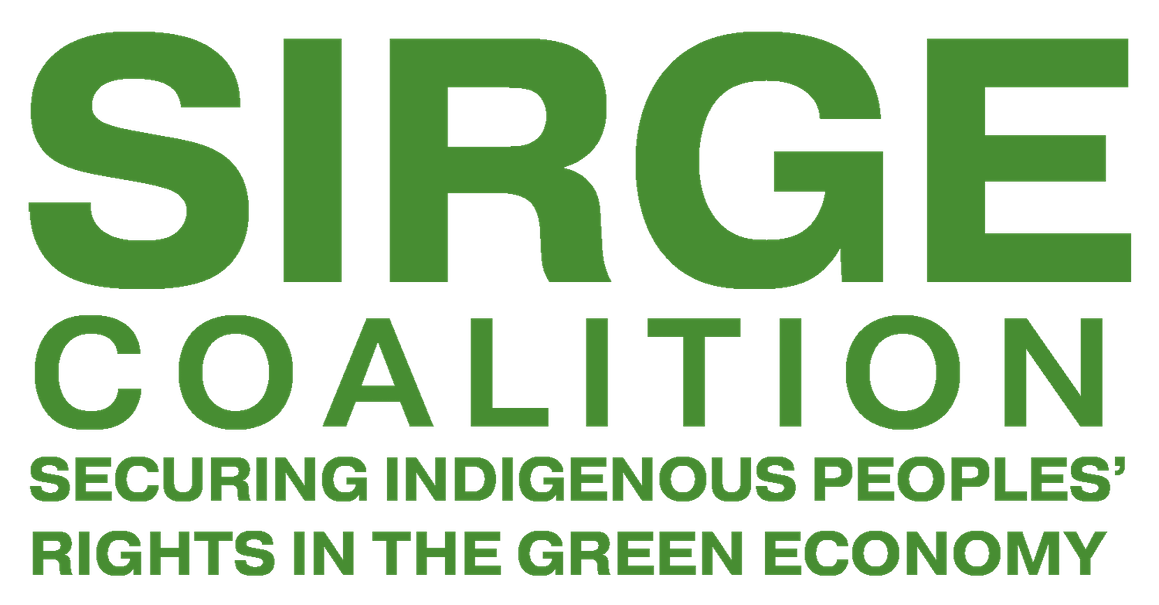COP28 Organization Sign-On Letter: Ensure Indigenous Peoples’ Rights Are Secured in the “Green” Transition

Dear COP28 Delegates,
We, Indigenous leaders and allies from diverse cultures, traditions, and regions across the globe, are united in calling for COP28 to be a platform to discuss Indigenous Peoples’ rights in the context of the increasing demand for minerals mined for energy storage, electrified transportation batteries, and other green energy technologies. In our call, we urge for governments and corporations to respect, protect, and fulfill Indigenous Peoples’ rights, specifically the right to Free, Prior and Informed Consent (FPIC), as the minimum standards enumerated in the United Nations Declaration on the Rights of Indigenous Peoples (UNDRIP) and the ILO Convention 169, to ensure equitable and responsible environmental and social practices on our lands.
We acknowledge and emphasize that it is more important than ever to transition to clean energy and clean transportation solutions, and away from fossil fuels such as oil, coal, and gas. Indigenous leaders have been calling for climate action around the world for decades. We have ancestral, cultural, and spiritual ties to our lands that not only require our participation in climate advocacy but also call us to commit to the proper stewardship practices of nature that are deeply rooted in our ways of life. Many Indigenous leaders are pursuing and championing clean energy and transportation solutions on their territories that align with their self-determined needs and goals. These Indigenous-led solutions need to be acknowledged, recognised, promoted, and funded by States and private entities.
While we are at the forefront of the fight for climate action and clean energy, our profound connection to our ancestral lands also puts us on the frontlines to ensure that these lands will not be sacrifice zones for those companies and politicians who seek a quick fix in the name of climate solutions. Our commitment to a just transition doesn’t overshadow our firm stance against mining practices that occur without obtaining FPIC of Indigenous Peoples and can lead to displacement; migration; and livelihood, cultural, and language loss. We firmly assert that mining operations must adhere to responsible practices guided by the FPIC framework, which upholds the right to self-determination of Indigenous Peoples. We, Indigenous Peoples, hold an inherent and inalienable right to make decisions about the future of our lands, territories, and resources.
The historic exploitation of our people and lands by oil, gas, and mining companies showcases a legacy of putting profits over our well-being, health, safety, cultures, traditions, and our sacred lands, waters, and air. With 54% of energy transition minerals globally located on or near our Indigenous Peoples’ lands, it is imperative that our communities participate meaningfully in decision-making and are able to exercise our right to give or withhold consent to these projects that will impact our lives, livelihoods, and cultures.
Ignoring our voices will only perpetuate the fossil fuel and mining industry’s status quo. Instead, if and when new mines are proposed on our ancestral lands, Indigenous Peoples must be involved from the start. Our subsistence, cultural practices, and priorities must be at the center of negotiations for proposed mines on our lands. We need to be involved in policies and enhanced levels of engagement and transparency at every step of the process. These must be co-developed with our participation and according to our leadership and governance structures.
The most protective way to achieve this is for governments and businesses around the world to ensure the highest standards of FPIC occur for every proposed minerals mining project that impacts Indigenous Peoples. As articulated in the UN Declaration on the Rights of Indigenous Peoples, which was adopted by the United Nations in 2007 and endorsed by many countries throughout the world, FPIC expresses consent-based protocols defined by Indigenous leaders, secures decision-making authority and participatory rights in all decisions that affect Indigenous communities and territories, and helps understand the full impacts of projects affecting Indigenous Peoples lands, subsistence, and cultural practices, and ways of life.
FPIC encompasses Indigenous Peoples’ right to:
- Enter into conversations and negotiations without coercion or manipulation.
- Engage in consultations and decision-making processes long before decisions are made concerning their land, resources, individuals, and communities.
- Utilize their own traditional decision-making structures/governance, ensuring that these structures are respected and integrated into the process.
- Have full information that is easily accessible and readily available in a language they understand.
- Say “yes” or “no” to a project.
- To be involved and heard throughout a project’s life cycle wherever it impacts people and resources.
- Retain the ability to withdraw consent at any stage of the project or activity if circumstances change or new information arises that affects their consent.
- Receive support and resources necessary for effective and meaningful participation in discussions and decision-making processes.
We will not back down from our role as leaders in the fight for climate action and clean energy. COP28 must be the foundation for governments around the world to build on this momentum and take the urgent steps needed to secure Indigenous Peoples’ self-determination as reflected in UNDRIP and as defined by impacted Indigenous Peoples so that the world can get this transition right, take the required climate action, and avoid making the mistakes of the past that have put our people and ways of life at risk, and have pushed planetary boundaries to dangerous limits. In the spirit of this effort, we believe it is an opportunity to define a better and more inclusive world that serves all communities and all peoples – transcending the boundaries of concentrated political and economic power. In this collective vision, we are committed to protecting our shared cultural heritage and practices that bind us together and to continue being responsible stewards of the planet.
Thank you for your time and consideration.
Signed,
1. Securing Indigenous Peoples’ Rights in the Green Economy (SIRGE) Coalition
2. Cultural Survival
3. First Peoples Worldwide
4. Batani Foundation
5. Earthworks 6. Society for Threatened Peoples